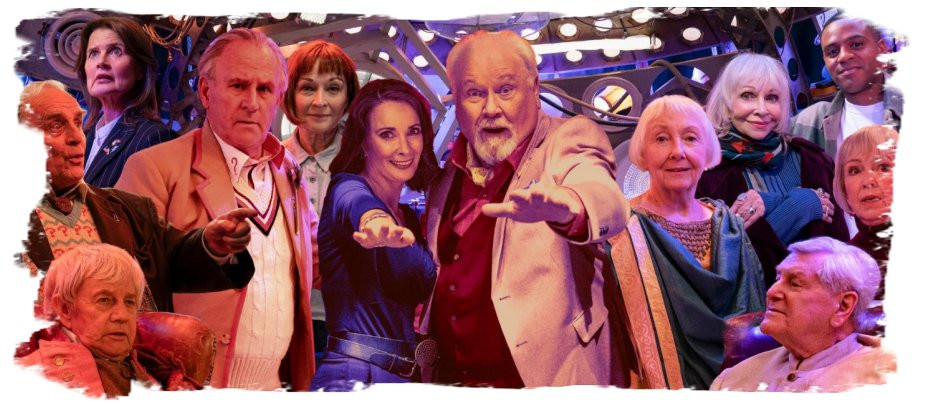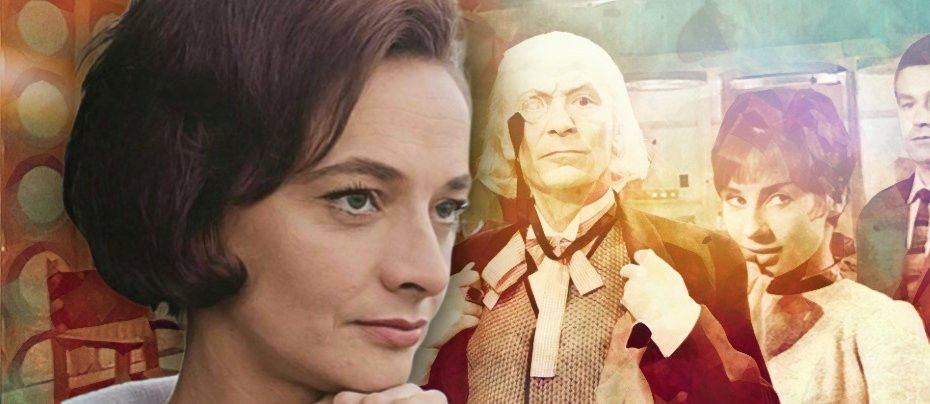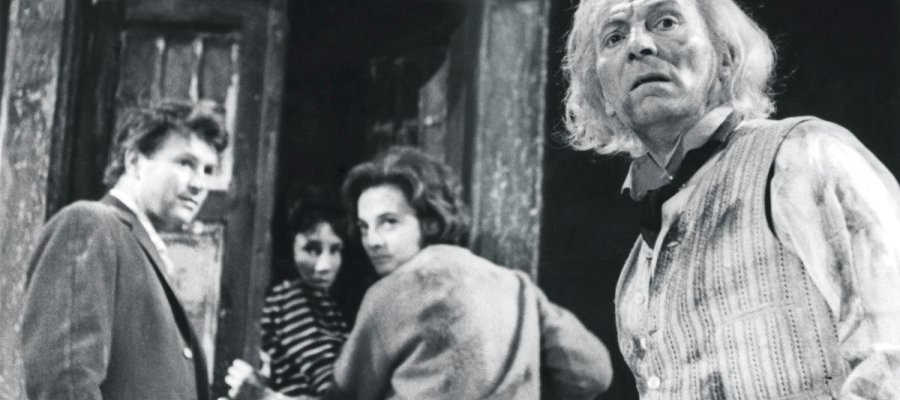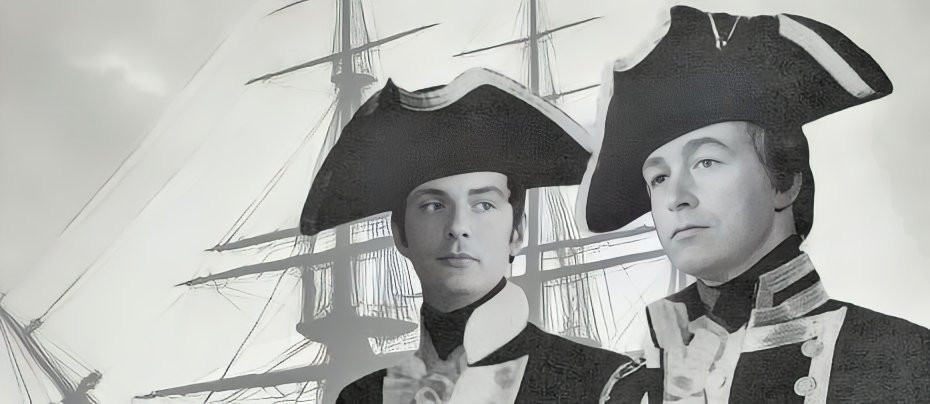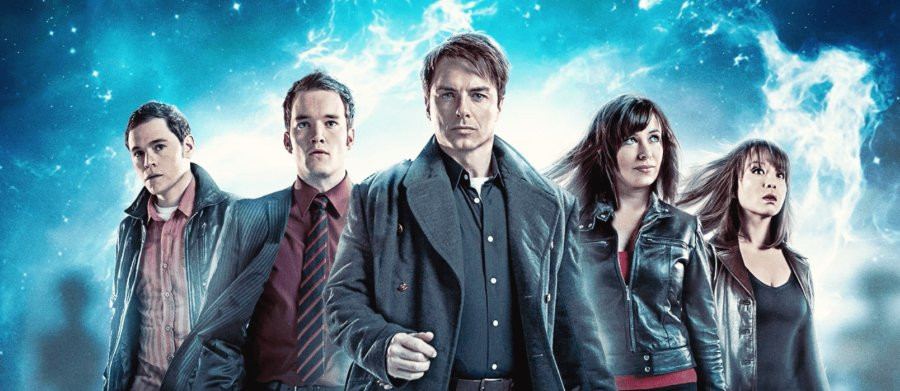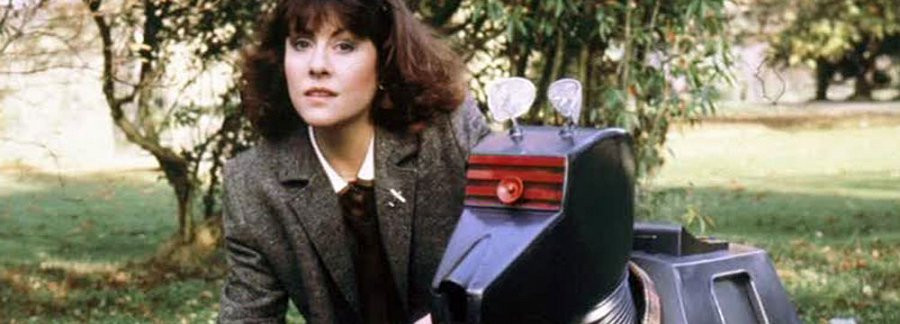The Keys of Marinus
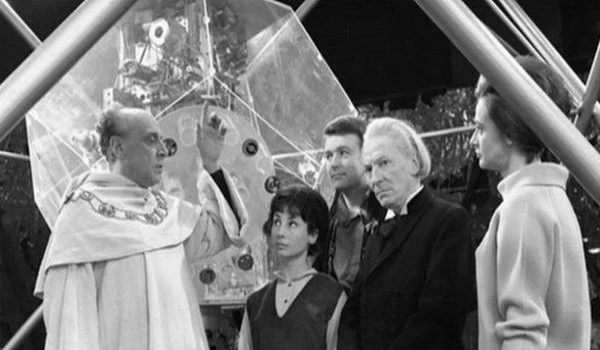
It's fair to say that The Keys of Marinus, one of Doctor Who's earliest serials, has never had the same impact as the stories that were broadcast around it. It's not ground-breaking like An Unearthly Child, and it lacks the sheer oddness of The Edge of Destruction. It's not an example of the series admirable early historical dramas, as are Marco Polo and The Aztecs, broadcast either side of it. While it has a distinctive monster race in the Voord, they can hardly be said to have made the same sort of impression as the Daleks had only a few weeks earlier. The Keys of Marinus is a good example of a straightforward Doctor Who story, and as such can be overlooked among its contemporaries.
This reviewer has to admit to having a soft spot for this serial; it was the very first example of black-and-white Who he ever saw. It's become a nostalgic piece, despite being first viewed in the late nineties, rather than on broadcast in 1964. However, there is a lot to recommend in the serial. It is highly episodic, and while some may dislike this approach, it follows the adventuring format that is at the heart of Doctor Who. Every episode, bar the last, takes place in a new location, each distinct and different from the last. It's the first season in microcosm, jumping from strange otherworlds to futuristic city-states, to primal environments where survival is all that matters. Human, or at least humanoid, characters mingle with bizarre monsters. It's missing some genuine historical input, but the Doctor does at least mention Pyrrho, the founder of Scepticism.
The first episode, The Sea of Death, begins with the cutest model TARDIS materialising on an island beach. Hardly the most impressive visual effect in the series history, even for the period, and the dinky submarines that approach aren't much better. They serve well enough though, and the full-size sets are very good indeed. The original TARDIS team explore an island where the rocks are made of glass, and rock pools hold corrosive acid. Ian and Barbara stare out at the acid sea, and wonder, given its stillness, if it could perhaps be frozen. "No, impossible at this temperature," says the Doctor, "and besides, it's too warm." It's hard to be sure when Hartnell is being deliberately eccentric or simply fluffing his lines, but either way that's a classic. The travellers are on pretty poor form, at this stage; Susan goes into hysteria after nearly singeing her toes in an acid pool, while the rest of them manage to let three submarines and a huge pyramid sneak up on them.
The subs belong to the alien Voord, allowing them to travel through the moat of acid and land on the island. It's no secret that Terry Nation wished to replicate the success of his previous creations, the Daleks, who'd already landed him a job writing a sequel and were powering a wave of merchandise. The Voord are no Daleks, however. Yet, they have a distinctive, memorable design, humanoid figures clad in black rubber, with bizarrely oversized heads. Strange, antler-like handles support either side, while an antenna juts out from the centre. We never truly learn what is inside the acid-proof wetsuit, and that's for the best; it could never live up to the camp majesty of the rubberware.
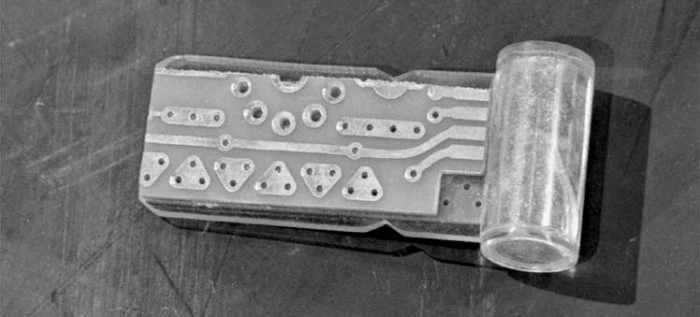
The four travellers enter the pyramid, managing to get themselves split up in record time. Voord stalk the corridors, attacking our heroes. One gets stabbed in the back, in a surprisingly gruesome moment, although the effect is rather ruined by the cardboard cut-out stand-in that falls to his doom from the structure. Before long, the keeper of the pyramid fortress, Arbitan, played with admirable conviction by George Colouris, has explained the concept of this serial to the travellers. These were the early days of the programme, when the Doctor and company had to be forced into hanging around in whatever hostile environment they found themselves in. Arbitan charges them with the task of recovering four 'microkeys,' vital components of his mind-controlling Conscience machine, before the Voord take power. To enforce this, he places an impenetrable force field around the TARDIS, which raises the question of why he doesn't just do this to the Conscience to keep it safe.
Arbitan has hidden the keys in various places around his planet, Marinus. He grants our travellers special travel dials, essentially wrist-worn teleporters, to get them from location to location. This does provide a problem for Nation's script; having gone to the trouble of stranding the characters, he then gives them another means of escape, and so has to invent further reasons to keep them in each area. Nonetheless, this constant hopping from place to place keeps things fresh, and Marinus is almost unique among Doctor Who planets in having a variety of different environments, rather than just being a desert planet, an ice planet, a quarry planet, or whatever. The first location they come to, in the episode The Velvet Web, is the city of Morphott, where all your desires are made real. It's the strongest of the six instalments in the serial. A clever episode, it's well directed, as we see the two sides to life in this city. While Ian, Susan and the Doctor see the illusion of a decadent paradise, Barbara breaks free and sees the rundown reality. Switching between the two viewpoints is elegantly done. There are some comedic moments, such as when the Doctor examines a grotty old mug and declares it to be an exceptional piece of scientific equipment, and Ian's character is nicely played, as his instinctive cynicism about the place wears away and he is taken in. There's enough material for an entire serial here, as we see friends turning against one another, slavery and the power of temptation. It's rather wasted as a single instalment of a serial. The climax is especially memorable, as Barbara confronts Morpho, the architect of this dystopia, a collection of brains in tanks, their eyeballs quivering on stalks. It's a cliched image, but hard not smile at. When Barbara goes for it, smashing the Morpho brains in their jars, their screams are really quite horrible.
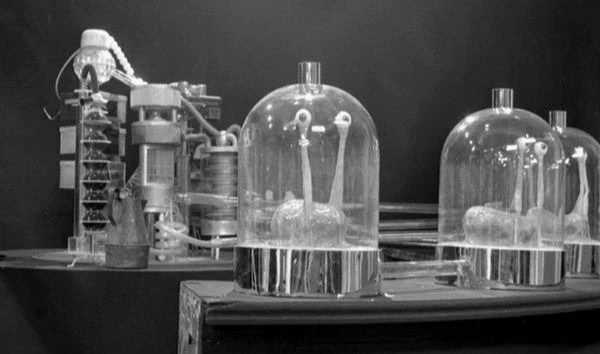
Leaving revolution in their wake, with one key in the bag, the team gain two new allies - Arbitan's daughter Sabetha (Katherine Schofield), and Altos (Robin Phillips), sporting the shortest shorts in all Marinus. Both give strangely intense performances, even after they escape the Morpho creature's hypnosis. Seemingly determined to split the group up at every opportunity, the Doctor suggests he nips ahead to episode five, giving Hartnell the chance of a fortnight's holiday. The remainder travel on to The Screaming Jungle, where once again, Susan is reduced to howling hysterics. Carole Ann Ford tries her best with the material, but Susan is quickly a nuisance in this story and it's a relief when she's taken off by Altos and Sabetha. The Screaming Jungle is easily the weakest of the six episodes, although it contains some interesting concepts. The jungle set itself is quite convincing, although the deadly plants that attack first Susan, then Ian and Barbara, are laughable. A creepy, faux-Aztec idol in the jungle holds a microkey, but Barbara fails to notice the two clearly human arms sticking out from its stone front, and is summarily grabbed and groped, pulled into the interior of some peculiar building. Not only that, but the key turns out to be a fake, necessitating further searching. Our schoolteacher heroes come under fire from the most elaborate array of death traps ever seen outside of an Indiana Jones movie, and one wonders just how Arbitan ever expected anyone to recover these keys when the time came. The resident mad scientist explains how he's set all this up, before babbling riddles and promptly dying, leaving Ian and Barbara to find the key while the jungle attacks, accelerated by the scientist's meddling with the 'tempo of destruction' (seemingly a combination of entropy and life force).
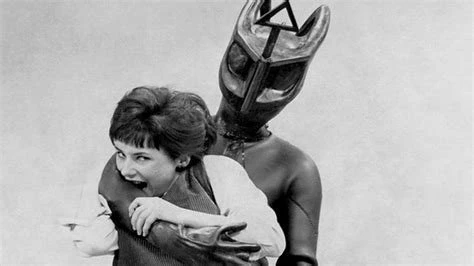
Episode four is The Snows of Terror, or as it should perhaps be named, 'The Polystyrene of Fear.' the snowy wastes are very unconvincing; however, much stock footage of wolves is used, but this is actually a fine episode. It's raised above the bar by the presence of a genuinely villainous character, Vasor, a hairy-backed rapist played with relish by Francis de Wolff. At first coming across as a reasonable, if untrustworthy man living on the edge of civilisation, he later tries to get Ian eaten by wolves, and goes on to attack Barbara, in a surprisingly strong scene for a programme aimed at younger viewers. It's also revealed that he's left Altos in the snows and stranded Susan and Sabetha in some caves with little more than a few flints to keep them alive. Once forced to take Ian and the others to the caves to rescue the girls, he becomes a snivelling coward. He's a truly despicable character and perks up the story no end. He also nicks the keys and travel dials from the travellers, handily stranding them there, although why it doesn't occur to Ian to take them back at the earliest opportunity is a mystery. The episode drifts into more mysterious territory as the travellers search the caves for the next key. Once again, one has to question Arbitan's sanity, as it is revealed to be frozen in a solid block of ice, guarded by immortal ice soldiers, on the far side of a ravine. Couldn't he at least have set the travel dials to get them a bit closer? The ice soldiers are intriguing; quite what they are is uncertain. They stand, immobile, guarding the key, until it is taken, whereupon they come to life and attack relentlessly. Perhaps they are robotic, yet when one falls down the ravine, it emits a very human scream. They even have human eyes behind their helmets, although whether that's purely a costume limitation is questionable. Nonetheless, they make short work of Vasor as the heroes make their escape.
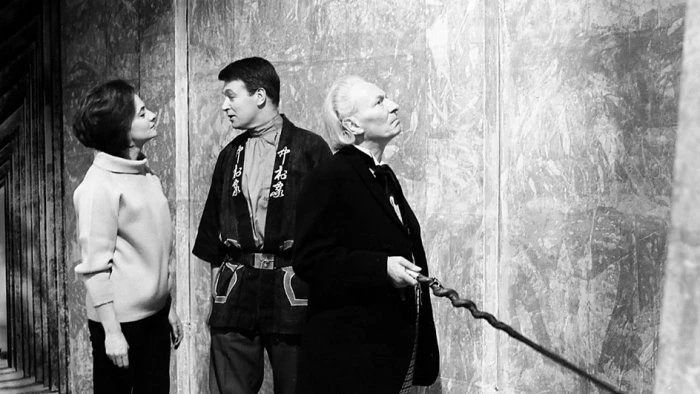
They're straight into trouble again, with Ian knocked unconscious and framed for murder before he's even made it to episode five. It's called Sentence of Death, so we know he's in big trouble. This is the city of Millennius, a reasonably civilised city that seems to be run as a police state, and where the accused are guilty until proven innocent. Quite why the key is on display in the vault is unclear, but the Millennians are aware of its value and so it is a tempting prize for thieves. Ian desperately tries to convince Tarron (Henley Thomas), the investigator on the case, of his innocence, carefully leaving out the fact that he was about to pinch the key anyway. It doesn't work, and the case goes to trial. Thankfully, the Doctor is back from his holiday, and appoints himself as defendant attorney. It's a great showcase for Hartnell, allowing him to take charge after two episodes of the 'Ian and Barbara Show,' although he does ham it up at every opportunity. He's far better than any of the Millennians, however, who come across as either hammy over actors, or barely actors at all. It's unusual to see the programme take a turn towards mystery and detection. A locked room mystery in a civilisation with teleportation perhaps shows a lack of forethought; Nation at least makes it clear that Tarron and his colleagues have never seen anything like the travel dials before. Another intriguing element that is thrown away is the concept of psychometrics, a form of clairvoyance or divination, being used in police investigation. "CSI: Millennius" could have been a winner. While the Doctor uses his wits to close in on the criminals behind the plot, it's Barbara's painful blundering about that eventually yields results, although not before Susan gets herself kidnapped. The confusion and double-crossing is all too much for one episode, and Ian isn't let off the hook until the final instalment, The Keys of Marinus itself.
With all the keys finally in their possession, all five of our protagonists head back to the island of glass, but not before getting themselves split up again. Since they were last here, the Voord have taken the fortress, and murdered Arbitan. Yartek, the Voord leader, has taken control. It doesn't take him long to get the keys off Altos and Sabetha, but one remains in Ian's possession. In the serial's most incredible moment, Yartek puts Arbitan's cloak over his enormous misshapen head, and manages to fool Ian and Susan into thinking that he's the real deal. It's quite astonishing. Thankfully, Ian isn't as stupid as he appears, and substitutes the fake key from the jungle for the real one, leading to a tremendous explosion when Yartek attempts to activate the Conscience machine. At the end of all this, Arbitan and all the Voord are dead, the Conscience is destroyed, and one must wonder what the point was in finding all the keys. Yet there's a lesson to be learned. "I don't believe that man was made to be controlled by machines," says the Doctor. "Machines can make laws, but they cannot preserve justice." In spite of the varied adventures, a single theme carries through The Keys of Marinus: that of the desire for lawfulness, and the lengths to which people in power will go to preserve it.
Arbitan, Yartek, Morpho and the people of Millennius all sought to control the minds of men, believing this to be the way to maintain peace and justice. The presence of the Doctor and his companions may well have had some lasting effect on the peoples of Marinus, for good or ill. In the meantime, the viewer has been treated to an enjoyable romp through a series of Boys Own adventures. A serial that's indisputably weak in parts, The Keys of Marinus may not make it into a list of the series' greatest hits, but it has enough charms to make it worthwhile.
Review by Daniel Tessier (2012)


